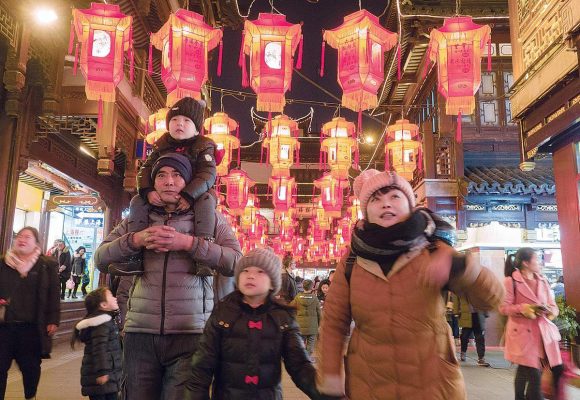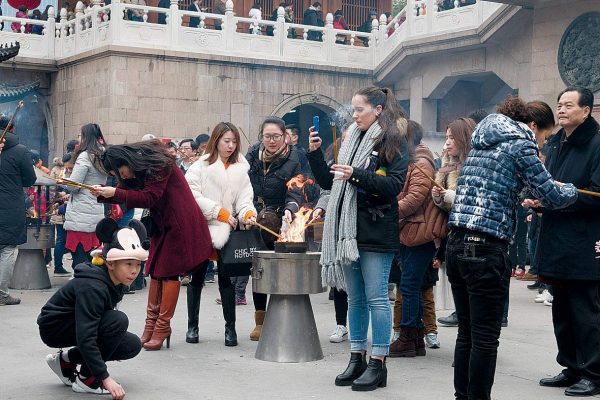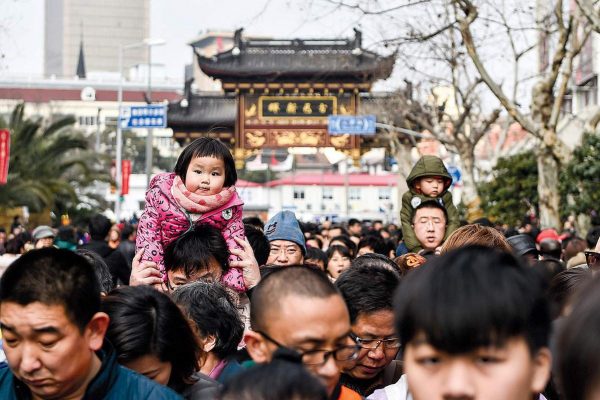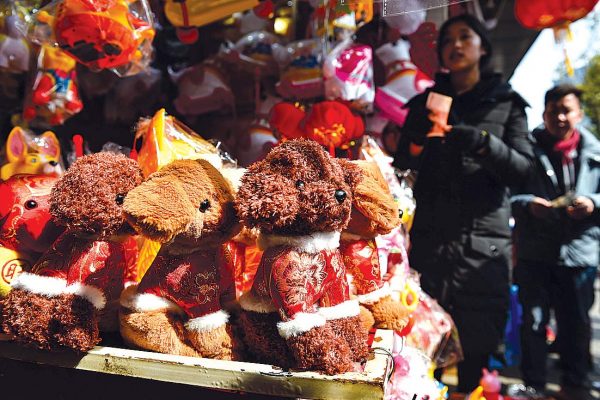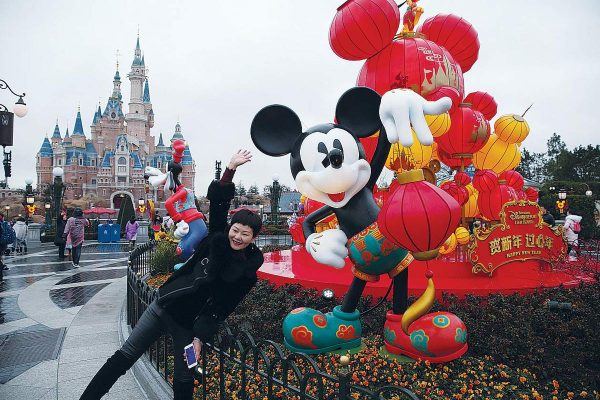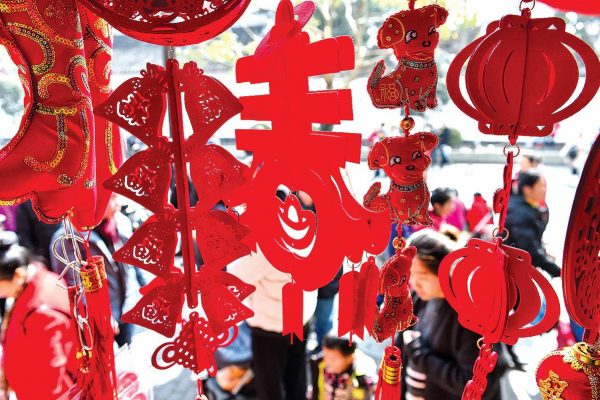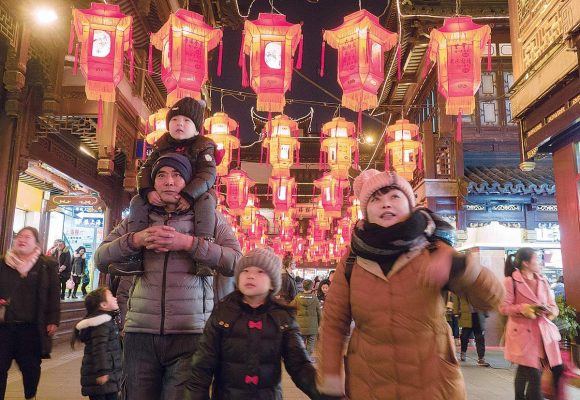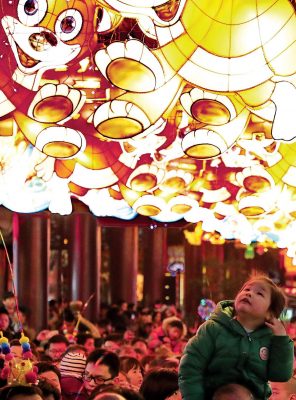
For many married Chinese, home decorations and clothes aren’t the only things they have in this auspicious color
Red is arguably the most provocative of all colors.
In color psychology — the study of how hues impact our behavior and emotions — red is typically associated with love, passion and energy.
The Lunar New Year, a time of family reunion and boisterous merrymaking, is encapsulated by these very traits. It is perhaps unsurprising that there is no other Chinese holiday that features as much red as the Spring Festival.
The Victoria’s Secret boutique in Shanghai has swapped their display pieces to red. The sales assistants at the Huawei store nearby have started wearing red hoodies. All the apparel stores along Huaihai Middle Road have started to showcase their red clothing.
Away from the streets and in people’s homes, ornaments like lanterns and couplets bearing auspicious sayings are always in red. The occupants of these homes too are often dressed in clothes that have an element of red. In traditional households, wearing white or black will almost certainly incur the wrath of the elders.
In Chinese culture, red symbolizes prosperity and joy. In ancient times, Chinese also believed that the color had the power to ward off evil spirits, and would often paint the exteriors of their homes red.
As a Chinese, the Lunar New Year ranks among my favorite holidays. Besides getting to feast on the sumptuous meals prepared by my parents and relatives, the festival is also a chance to participate in interesting customs and light-heartedly indulge in superstition.
This would be especially relevant for me because this year, the Year of the Dog in the Chinese zodiac, is my ben ming nian (zodiac year of birth).
“You should be conservative in all aspects of your life this year,” said my colleague while we were having a conversation about the Chinese zodiac.
“Why? I’m a Dog. Shouldn’t it be a good year for me?” I replied.
“No. It’s the complete opposite. Your ben ming nian means that bad luck awaits,” she said.
Chinese astrology websites have the same warning — I would face problems with my finances, marriage and career, and should strive for modesty in all aspects of my life. This also includes not participating in high-risk activities. I wonder if that means I should no longer ride a Mobike to work.
But I knew there had to be something I could do to counter this, so I continued my research. As it turns out, there is indeed a way to ward off bad luck — I need to wear red underwear. Every day. For the entire Dog Year. But I’m not actually allowed to buy them — someone else has to present to me as a gift.
So if you’re feeling kind and would love to help, I prefer boxer briefs. Large should do nicely. Please make sure they are made with 100 percent cotton. Thank you.
Here’s another hilarious piece of advice I came across online: “It’s thought that during one’s ben ming nian, he would have bloody disasters. Metaphysics researchers think two methods could avoid this. One is tooth-wash and the other is blood donation.” This could be a little tricky. I hate the sight of blood, and I hate going to the dentist.
Maybe I should just kill two birds with a stone by scrubbing my teeth so hard that my gums bleed. Dear fengshui master, would this work?
One traditional Chinese custom that I don’t particularly enjoy is giving out red packets, or hongbaos, to relatives during the Chinese New Year. There are generally two schools of belief to doing this.
Married people have to give red packets to their parents, grandparents as well as younger siblings and relatives who are single. For the other practice, hongbaos are only given to parents, grandparents and relatives who do not have a job.
I think the latter practice is a lot more economical. Unfortunately, my family practices the former. It doesn’t help that I’m married and have to give hongbaos to my wife’s siblings and cousins as well. I only have 10 cousins. My wife has 20.
Every year, we spend about an hour sorting out red packets by size and design before slotting crisp bills into them. The parents and grandparents get the biggest, prettiest hongbaos. Our siblings get the second-largest ones, followed by nieces or nephews, and cousins. We also have to give red packets to random people we meet during house visitations (like the son of my uncle’s cousin’s father’s grandmother’s sworn sister from Shantou, Guangdong province).
Needless to say, even my monthly savings are in the red during the Lunar New Year.
